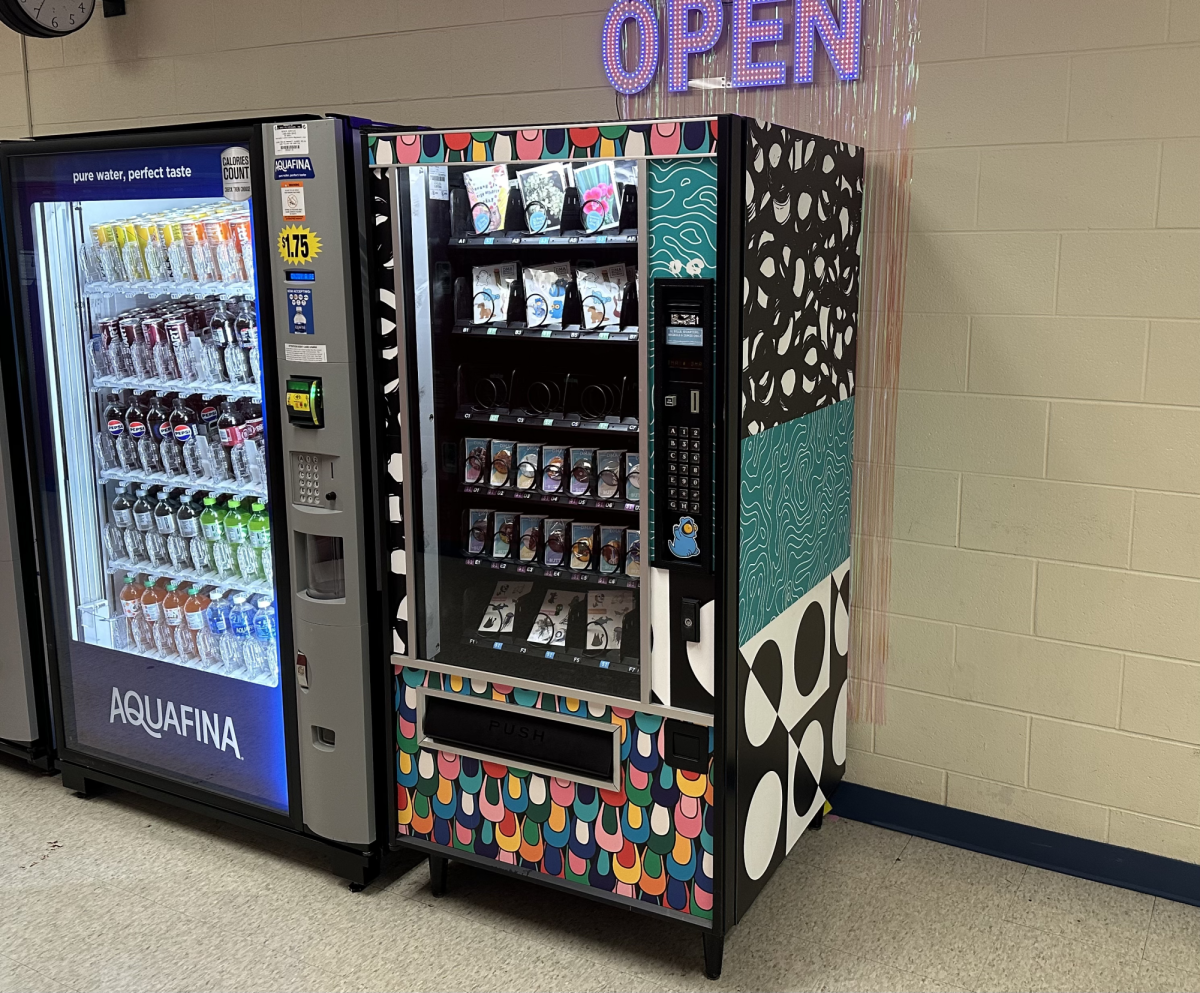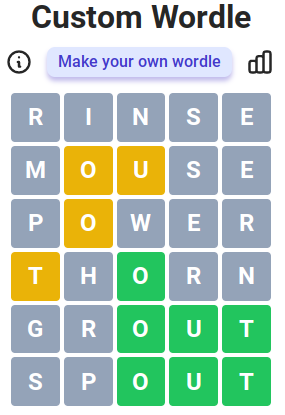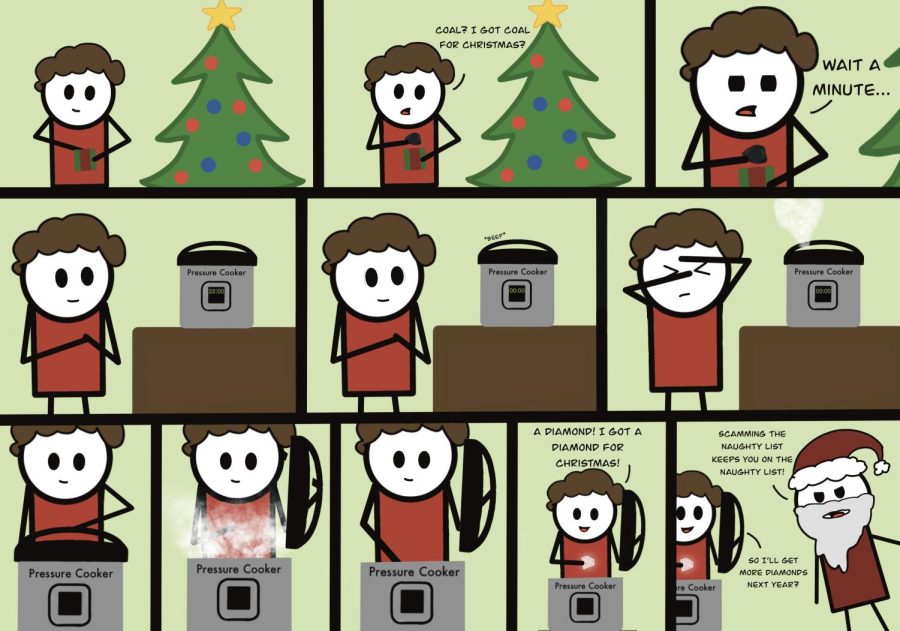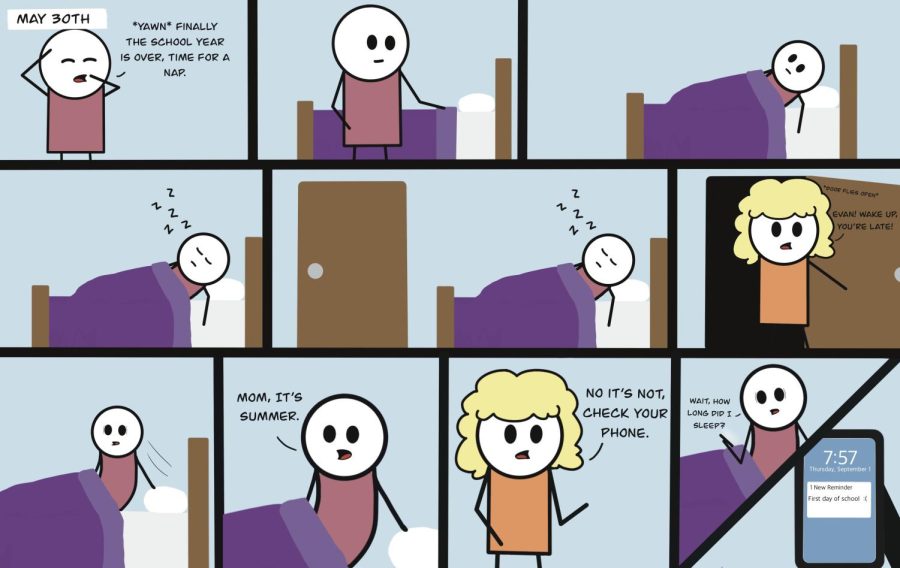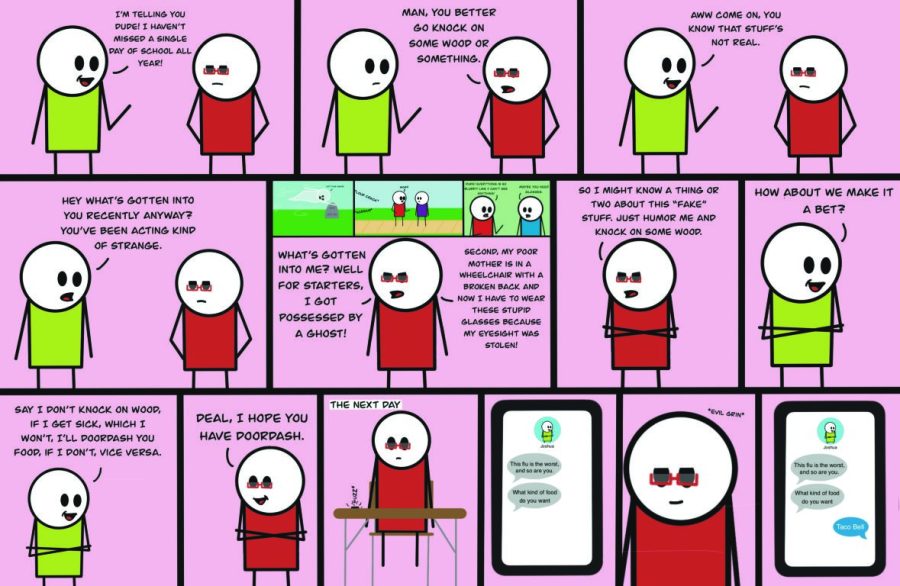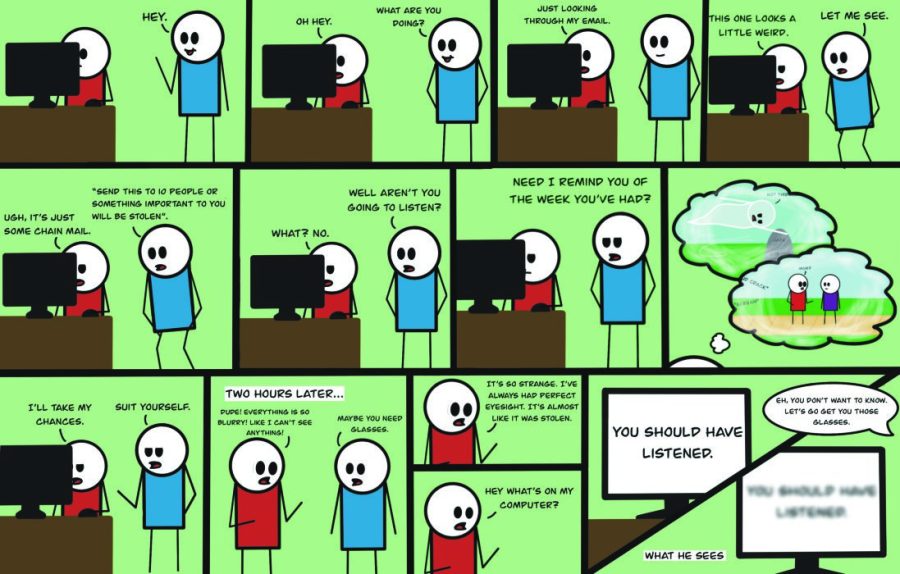Internet safety: What do parents not understand about being online
Students use their phones everyday for a multitude of things, calling, texting, and keeping up with social media.
Every fall, year after year, schools hold a class meeting to go over internet safety and how students need to protect their searches as well as keep their digital footprint clean because it follows you around forever. However, the presentation slowly became outdated as years passed.
So what do adults not understand about teenagers’ online lives? A panel discussion amongst students was conducted to answer this question.
Older generations see the internet as a challenge. They did not grow up with it like their children did, and the concept of teenagers having access to anything at the click of a button remains unfamiliar to them.
“I feel like they don’t understand that it’s a much bigger part of our lives than it was for them,” senior Cole Smith said.
In this day and age, avoiding the internet is nearly impossible, and with that, comes the good and the bad. However, students learn at a young age how to behave online to keep themselves safe, unlike their parents.
“It’s near impossible to live in our position as growing teenagers without the internet,” Smith said.
The internet also serves as a social platform, Often, real world relationships continue to grow and flourish in an online environment. On certain occasions, those relationships expand and teenagers continue to meet people via the internet.
“I don’t think my parents know how many connections I have online.” senior Will Moody said.
According to the American Survey Center nearly four in 10 Americans have online-only friendships or friends they interact with solely via the internet. Moody also reported that he knows over 20 people that he strictly talks to online.
“My parents say—whenever I’m on my phone a lot—that they lived without it. But I tell them people lived without cars before. Could you just stop driving your car?” senior Joedy Burnside said.
Similar to cars, the internet holds its own dangers: pop-up spams, the dark web, and creeps create reasons to doubt teenagers spending their time online.
“It’s reasonable to be afraid that there’s predators online and stuff, but we’re also like 17 and 18, we know how to be safe online,” Burnside said.
However, the internet also serves a variety of beneficial purposes. For example, staying connected with friends, researching for school assignments, college applications, and staying up to date with local news.
Students believe that educating parents about the benefits of the internet will help them give it the credit that it deserves, as well as show adults that the internet is not as bad as they might think.
“The internet itself isn’t bad, it’s how we use it,” Moody said.
Want to show your appreciation?
Consider donating to The Knight Times!
Your proceeds will go directly towards our newsroom so we can continue bringing you timely, truthful, and professional journalism.

Brooklyn, a senior at Kings, first joined journalism to better her writing skills. She soon fell in love with the class and decided to take it a second...

Jorie is a senior and serves as the Editor-In-Chief to The Knight Times this year, alongside her history of Broadcast Manager, Web Designer and many others....





